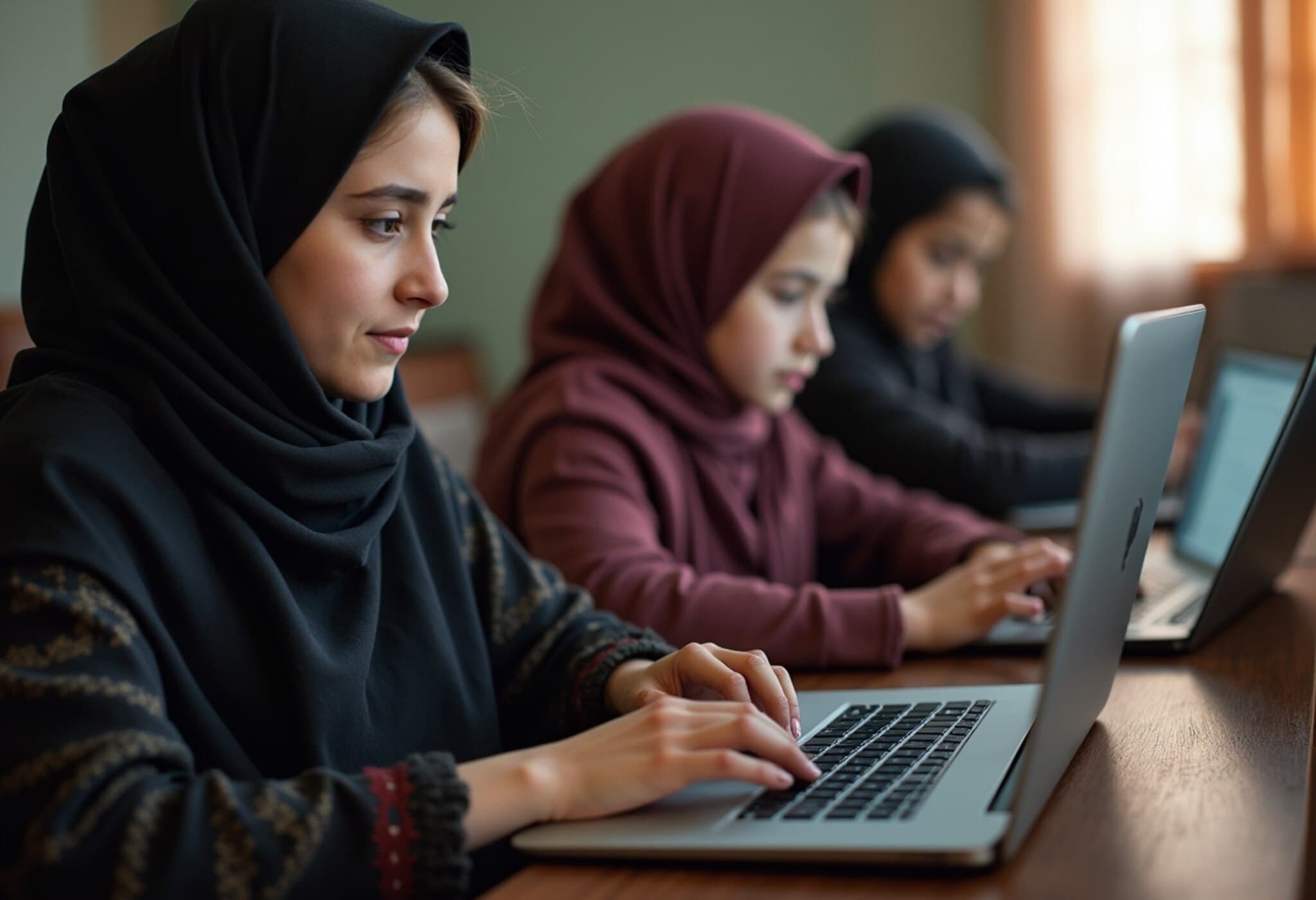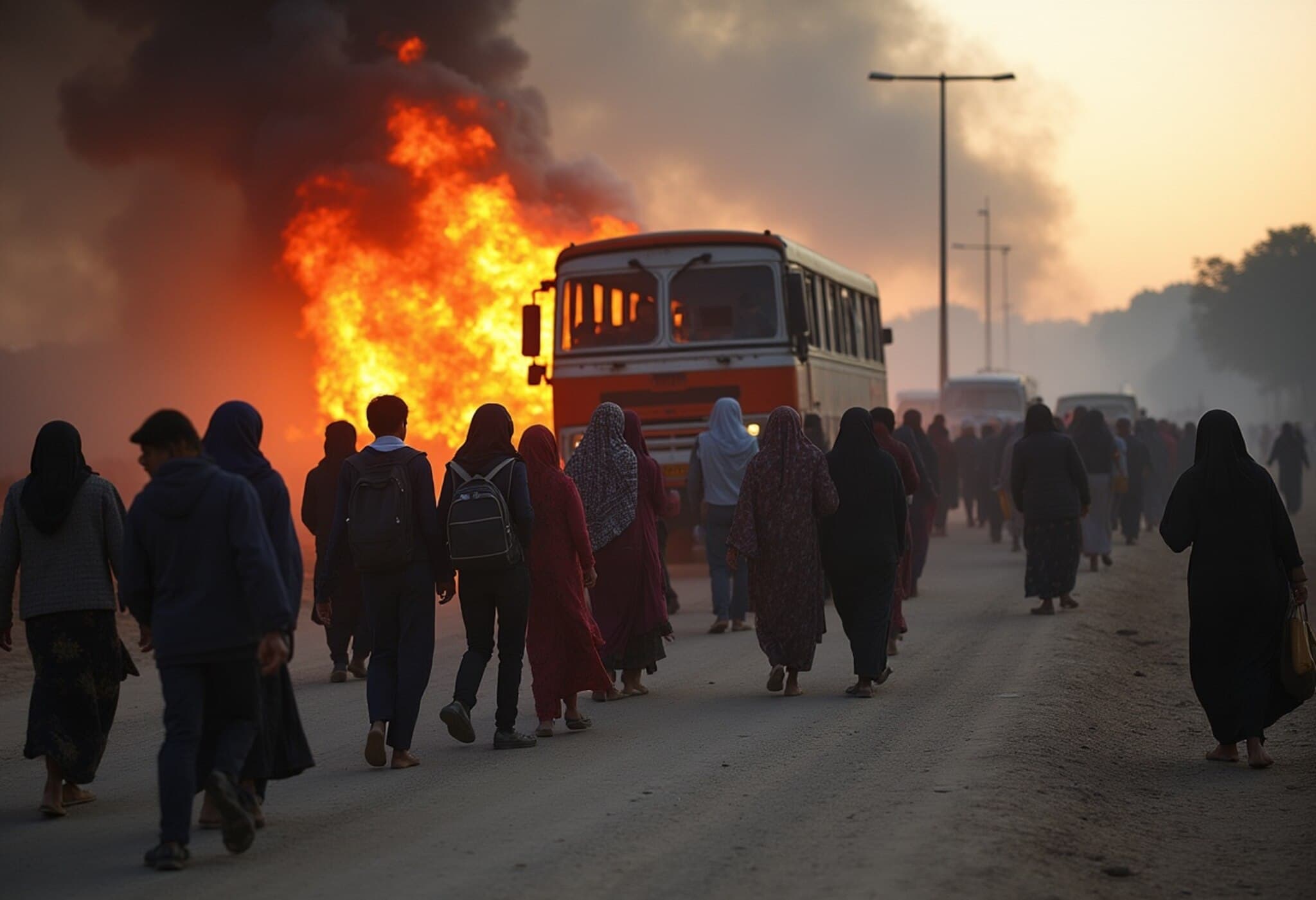Afghan Women Embrace Online Learning Amid Taliban's Educational Restrictions
Since the Taliban regained control of Afghanistan in 2021, women have faced an unprecedented crackdown on their freedoms. Among the harshest measures is a sweeping ban on female education beyond primary school, forcing thousands of young women into despair and isolation. Yet, amid these constraints, a beacon of hope has emerged in digital spaces—online courses are empowering Afghan women to reclaim their futures from the shadows.
The Crushing Reality of Taliban Restrictions
The Taliban’s return to power brought swift and severe limitations on women’s lives including bans on working in most professions, visiting public spaces like parks and gyms, and even restrictions on women’s voices and appearances in public. Educational institutions closed their doors to girls above primary level, extinguishing aspirations for countless young women like Sodaba, a 24-year-old pharmacology student forced to abandon her studies.
“I felt the world was closing in,” Sodaba shares, describing the frustration of watching her dreams slip away. Yet, compelled by determination, she found refuge online—enrolling in a free computer coding course offered by Afghan Geeks, a grassroots initiative run by Afghan refugees abroad. The course, delivered in Dari, enabled her to learn coding and website development remotely, offering a lifeline to skills and confidence.
From Refugee to Mentor: The Story of Afghan Geeks
Behind Afghan Geeks is 25-year-old Murtaza Jafari, whose journey from refugee to coder exemplifies resilience. Arriving alone in Greece as a teenager, Jafari had no knowledge of computers or English. With the help of supportive teachers, he not only learned to code but was inspired to create opportunities for women facing similar barriers back home.
- Jafari launched Afghan Geeks in December 2024 to provide women in Afghanistan with free online coding courses.
- The program has grown to 28 female students across beginner, intermediate, and advanced levels.
- Graduates receive mentorship to secure remote internships and jobs, circumventing the blockade on women working in Afghanistan.
His approach respects cultural sensitivities—never forcing students to share faces or identities—while fostering a supportive community. Afghan Geeks even offers professional tech services, generating income and empowering its female members through meaningful work.
Vision Online University: A Grassroots Effort for Free Female Education
Another remarkable initiative is Vision Online University, started by 20-year-old Zuhal and a university professor. Born from the void left by official bans, this virtual academy now educates over 4,000 Afghan girls voluntarily, covering subjects from psychology and foreign languages to Quranic studies and nursing.
Zuhal herself balances her role as a leader with studying computer science at an American online university. Despite financial struggles and technological hurdles, her commitment remains unshaken. “If I give up, thousands of girls will be left hopeless,” she explains.
The academy faces challenges like limited bandwidth and lack of funding but thrives on collective dedication, advancing education as a form of peaceful resistance against authoritarian repression.
Why Online Education Matters: A New Frontier for Afghan Women
In the context of Taliban-imposed isolation, digital platforms have become crucial channels for Afghan women to access education, build skills, and maintain a sense of agency. Beyond individual empowerment, these efforts have broader implications:
- Economic Independence: Online work enables women to earn income remotely, vital in a country where most female employment is banned.
- Social Connectivity: Virtual classrooms provide community and solidarity, combating isolation imposed by restrictive policies.
- Cultural Respect: By allowing anonymity and respecting local norms, these programs carefully navigate cultural sensitivities, ensuring safety.
- Global Solidarity: Afghan refugees and international supporters contribute expertise and resources, highlighting the power of transnational cooperation.
Expert Perspective: The Intersection of Policy and Digital Inclusion
From a policy standpoint, the Taliban’s bans violate fundamental human rights, including the right to education guaranteed under international law. However, the rise of online learning reflects the adaptability and resilience of marginalized communities.
Experts in digital inclusion emphasize that enhancing internet access and digital literacy within Afghanistan could transform education delivery, not only circumventing restrictions but also modernizing systems in the long term. Yet, the challenge lies in striking a balance between technological opportunity and the risks posed by government surveillance and censorship.
Looking Ahead: The Unseen Struggle and the Hope Online Education Brings
As the world watches the crisis in Afghanistan, stories like those of Sodaba, Murtaza, and Zuhal offer important reminders: repression breeds innovation, and hope persists even in the darkest times. Their determination signals a quiet revolution—one built on courage, community, and the empowering promise of education.
Editor’s Note
Despite brutal restrictions, Afghan women are carving out new pathways to education and economic participation through digital initiatives. These efforts underscore critical questions about international responsibility and the role of technology in advancing human rights under authoritarian regimes. As policymakers and advocates consider strategies to support Afghan women, recognizing and investing in grassroots digital education could prove pivotal in sustaining resilience and preserving future generations’ potential.













